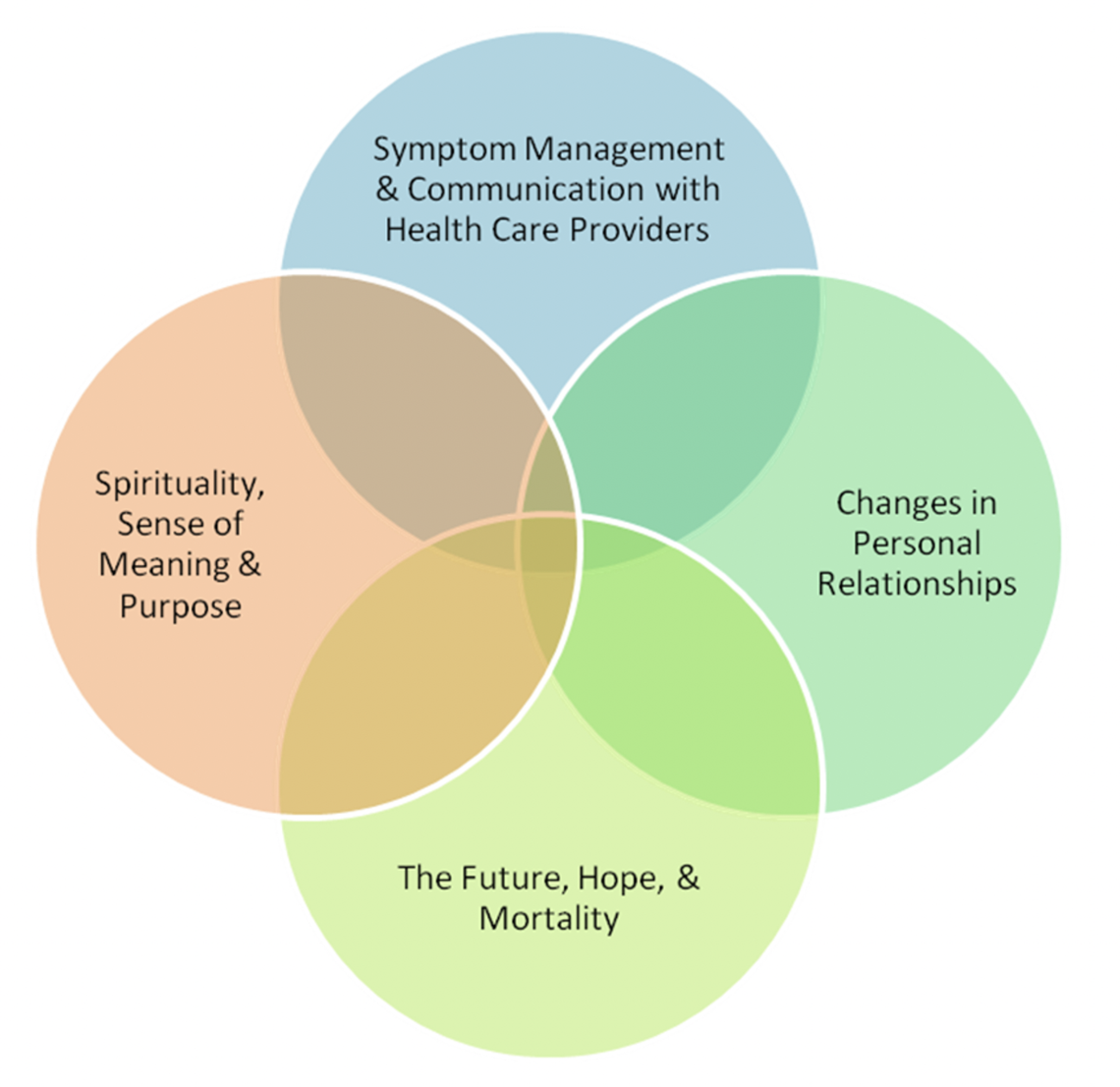An implementation study of the Managing Cancer and Living Meaningfully (CALM) intervention for individuals with advanced cancer in Calgary and Region
Preventing depression among persons with advanced cancer and their close other
This project has been approved by the Health Research Ethics Board of Alberta — Cancer Committee (Study ID: HREBA.CC-20-0269, V.1)
Update (July, 2022):
Please Note:
- As of July, 2022, recruitment is now closed for the CALM psychological intervention research project.
- For individuals with advanced cancer and their close others (e.g., partner, adult child, family member), CALM counselling will continue to be provided by Dr. Janet de Groot through ACCC Psychosocial Oncology. For more information, please call: (587) 231-3570
The developers of the CALM intervention have previously shown its effectiveness through psychotherapy evaluation studies at the Princess Margaret Hospital in Toronto, Ontario. The Calgary zone has the opportunity to join this global CALM initiative with this study.
The Calgary CALM implementation study will allow researchers and clinicians to better understand:
- the factors involved in training Calgary and South Zone clinicians to be able to offer CALM therapy sessions;
- the potential impacts of the CALM intervention on individuals with advanced cancer;
- the experiences of individuals who are identified as the caregiver or close other of individuals with advanced cancer; and
- the barriers and facilitators required to develop and sustain the CALM intervention in the Calgary and South Zone regional context.
The therapy is called CALM, which is short for Managing Cancer And Living Meaningfully. CALM was developed to help people manage the challenges of living with cancer, reduce distress and promote psychological well-being. CALM therapy is a brief, semi-structured psychotherapeutic intervention for persons with advanced cancer, who are invited to include an informal caregiver (e.g., spouse, adult son/daughter, family member, close friend) to one or more sessions.
The results of this study will help inform the type of hospital support services that are best for patients with cancer in different parts of the world, including Calgary and the South Zone.
3 Phases of the Study:
- Implementation:
- offer CALM counselling appointments to patients in the Calgary and South Zones;
- train clinicians from Calgary and South Zones in the CALM therapy model.
- Stakeholder Interviews:
- conduct interviews with stakeholders to assess local perspectives on the integration of CALM therapy into the context of Southern Alberta cancer care (e.g., barriers and facilitators to implementation).
- Digital Storytelling Intervention:
- implement Digital Storytelling intervention for patients and caregivers/close others who previously attended at least one CALM counselling session.
How CALM Counselling is provided:
- 3 to 6 sessions over 6 months
- 45 – 60 minute sessions
- Potential for additional booster sessions
- The first session explores each domain and determines which is/are most pressing or problematic. Topics are addressed throughout counselling.
- A close other, if present, is included in at least one session
- Potential to explore relationship issues
- Prepare the couple for the future (the problem is shared)
To refer a patient to CALM:
- Provide your patient with a copy of the CALM pamphlet.
- Contact us by phone using the information below.
For more information, please contact:
- Psychosocial Oncology: (403) 355-3207

Frequently Asked Questions
The following inclusion criteria are consistent with the patient population expected to benefit from CALM, with the goals being to address risk of depression and preparation for end of life. Persons from Alberta are eligible if they:
- be diagnosed with an advanced cancer (solid metastatic tumour, stage III or IV)
- are experiencing distress
- are age 18 or older
- are English speaking
- agree to include an informal caregiver in one or more CALM sessions
- are not impeded from participating by cognitive impairment
Over the course of the CALM Study, 50 – 60 patients with advanced cancer will be involved. All patients will be encouraged to include a close other.
Counselling sessions are provided virtually using the AHS-licensed Zoom Virtual Platform. More information on using Zoom can be found on our Zoom Resource Page.
Telephone appointments and limited in-person visits may be available if required.




